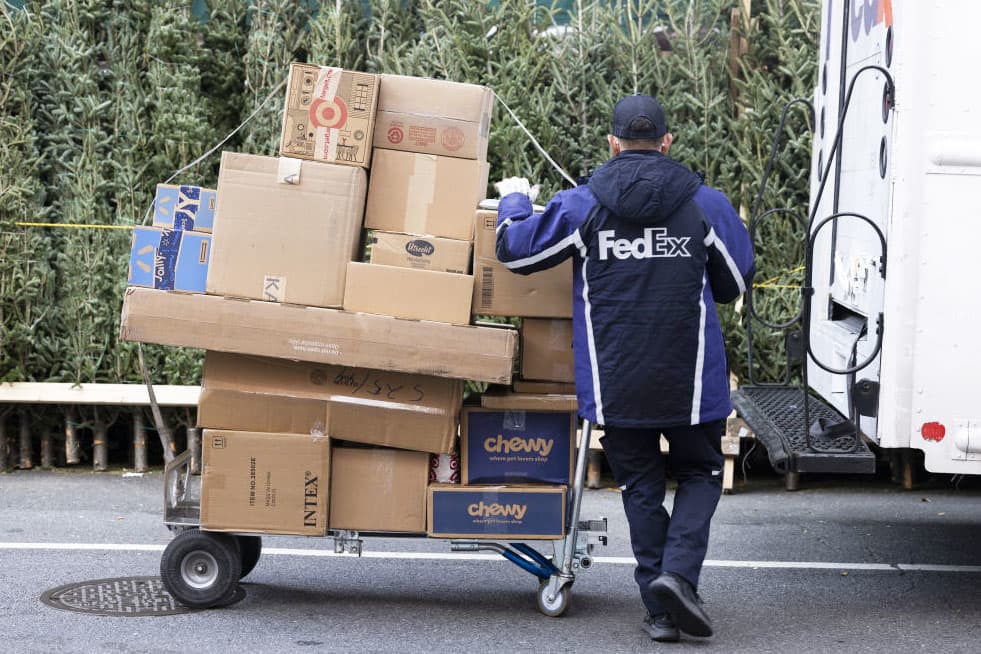
FedEx forecasts Monday will be its busiest day of the 2021 holiday season.
“We’ve seen a lot of people actually starting their Christmas shopping in the month of October, which is fundamentally different than we have seen traditionally in the past,” Ryan Kelly, vice president of global e-commerce at FedEx told CNBC. “What you see is a lot of messaging about shop and ship early, pulling sales forward, pulling promotions forward. A lot of retailers have really leaned into that this year.”
In October, FedEx delivered approximately 96% of packages on time compared with 99% for UPS and 99% for the U.S. Postal Service, according to data from ShipMatrix. On-time delivery above 95% is considered a sign of an efficient network, especially with 70% of e-commerce being delivered to homes, which is generally more time-consuming and less profitable than business delivery.
FedEx estimates it will deliver 100 million more packages this year than it did from Black Friday to Christmas in pre-pandemic 2019 and 10% more than the record 2020 season during Covid.
Kelly said the growing “ship from store” trend being used by many leading retailers including Target and Walmart has reduced strain on shipping networks. “Some of the best retailers out there are really leaning into their retail stores. They have deployed inventory in those stores, it improves transit and lowers cost if a retailer leverages that localized inventory.”
“This season looks pretty good compared to last year. The increased number of people shopping in-store, shopping early has reduced the demand” for delivery all at once, Satish Jindel, CEO of ShipMatrix told CNBC
According to ShipMatrix data, overall e-commerce will increase 13% from the record 2020 holiday season to 3.4 billion packages shipped. However, the daily number of delayed e-commerce shipments or packages exceeding the available capacity on all shipping networks will fall 82% from 7.3 million packages in 2020 to 1.3 million package this year.
“This season, the carriers have added capacity. That helps them manage costs, that helps them manage margins.” Jindel said.
It remains unclear how the Covid omicron variant will impact the holiday shopping and shipping season.
In-store shopping increased by nearly 48% on Black Friday from 2020 as toys and consumer electronics were the top sellers, according retail tracker Coresight Research, citing Sensormatic data. However, omicron has the potential to reverse this year’s trend, Coresight founder and CEO Deborah Weinswig said, as stores fight to get back to pre-pandemic levels in 2019.
“The recent spike in Covid-19 cases along with the first case of omicron in the U.S. [announced on Dec. 1, 2021] could impact store visits and drive consumers back online. We expect BOPIS [buy online, pick up in store] to grow in popularity through the remainder of the holiday shopping season and beyond, as consumers value convenience,” Weinswig said.
From Thanksgiving Day through Cyber Monday, Adobe Analytics said consumers spent nearly $34 billion online, down 1.4% from 2020. However, the slowdown was more a result of earlier deals than shoppers pulling in their purse strings.
— Certain stocks, besides delivery giants FedEx and UPS, stand to benefit more than others from this year’s e-commerce boom. CNBC Pro looks at some of the names that Wall Street analysts are recommending.




